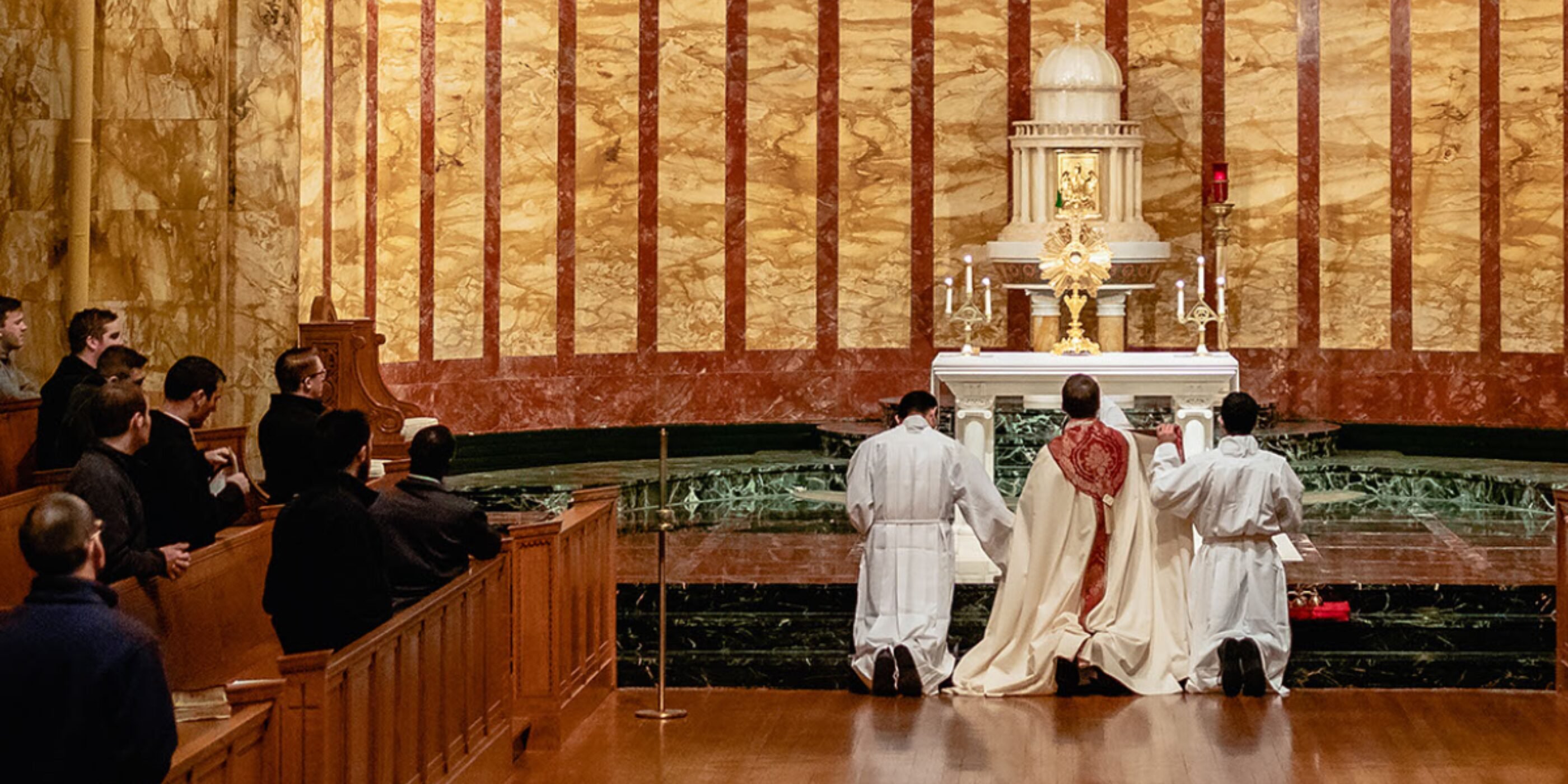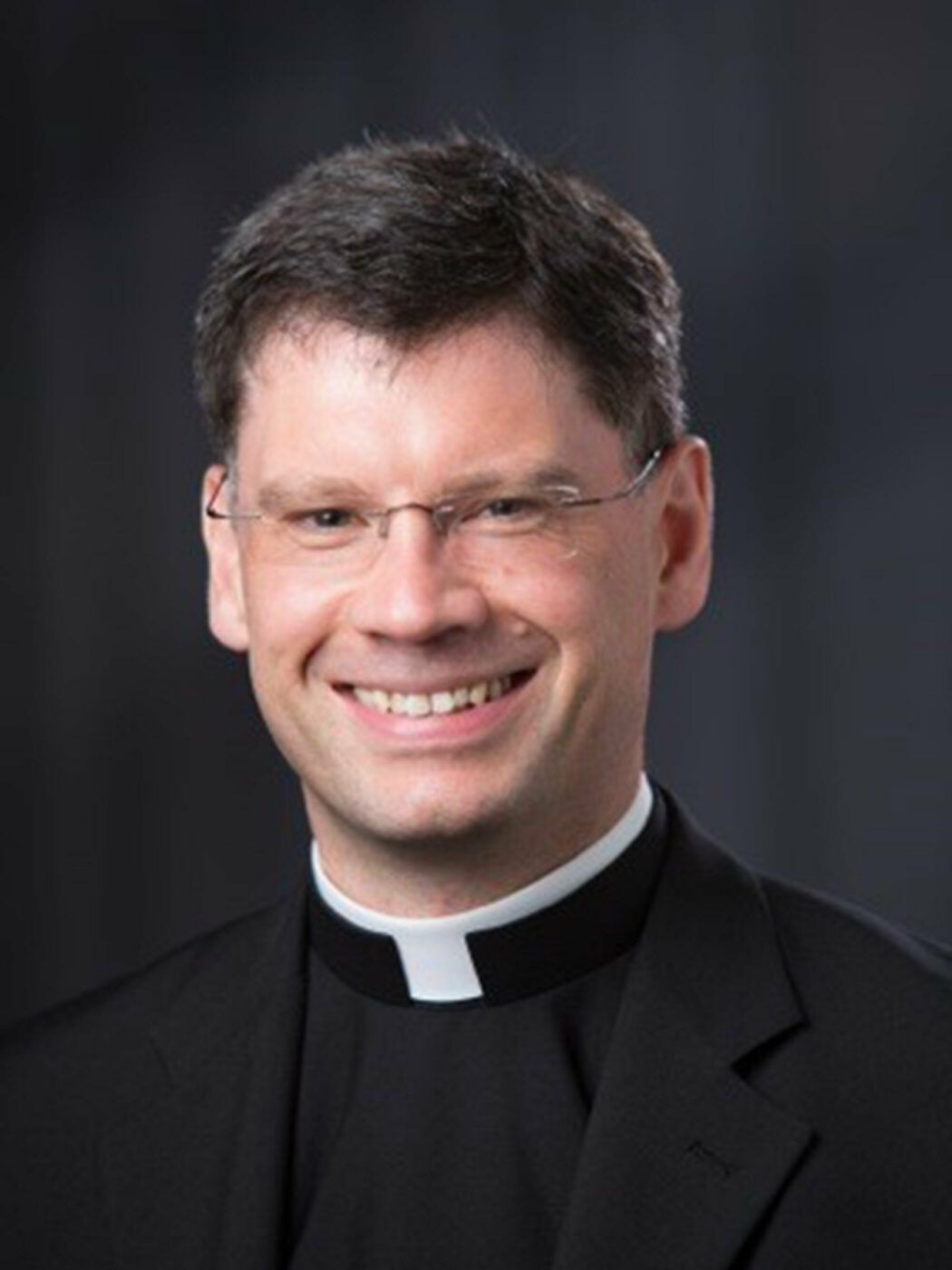Often at Mass I’m moved by a line in the prayer the priest says quietly before consuming the Lord’s Body and Blood. Addressing the Eucharistic Jesus, he prays: “your death gave life to the world.” It is Christ’s saving death on the Cross that gives life to the world. No wonder, then, that He offered Himself on the Cross and returned to the Father only after leaving us a means of sharing in His saving sacrifice, as if we had been there. The Lord left us a living memorial of His Passion. In the Eucharistic Sacrifice, the Crucified and Risen Jesus offers Himself to the Father, gives Himself to us, and draws us into His divine life and love.
The Eucharistic Gift is Christ Himself. It is His living and life-giving flesh “for the life of the world” (John 6:51). He gives us everything, holding nothing back. No wonder it’s called the Sacrament of Love or Charity. It enables us to do the same—to give ourselves with the love of Christ, to pour ourselves out as He pours Himself out in the Eucharist.
Today, Corpus Christi, we focus on the abiding presence of the Lord of Life in the Eucharist. He remains with us and asks us to remain with Him. After the first Mass, the Last Supper, He asked three of His disciples to keep watch an hour with Him. They were not able to do it at that time, weighed down as they were by weariness, weakness, and fear. But we can! Indeed, He asks us to come to Him when we are tired and wearied and carrying heavy burdens. We can experience for ourselves the peace of prayer close to His eucharistic heart. Cherishing those moments after we receive Him in Holy Communion is important too: a time to tell Him we love Him, we need Him, and we want Him to be our life.

We can, of course, pray anywhere—for God is everywhere. But He is not present everywhere in the same way. Jesus is not present elsewhere on earth in the same way He is present for us in the Blessed Sacrament—in His sacred humanity—in His crucified and now glorious Body. The same crucified and risen Jesus who ascended into heaven gives Himself completely at our earthly altars and abides for us in our tabernacles. This is why prayer before the Blessed Sacrament has particular power and fruitfulness.
The multiplication of the five loaves and two fish in today’s gospel is a sign pointing to the much greater gift of the Eucharist. At the Eucharist, even more than in today’s gospel miracle, those who hunger for life can eat, and be satisfied, and be transformed. We become what we receive (St. Augustine). Everything the priest does is somehow linked to bringing people to the Eucharistic Jesus who transforms our lives, for at the Eucharist “this table is an altar and this Bread is God” (G. Torretta, O.P.).
Over the face of the earth, Christ pours Himself out in the Eucharistic Sacrifice “for the life of the world.” In these days, let us pray fervently that He who reconciles all things and brings peace “by the Blood of His Cross” (Col 1:20) may pour out that gift of peace anew on our suffering world. The Eucharist is the Life of the world.


